FACS NEWSLETTER
Chemical Industry Development in Singapore
发布时间:2016年05月06日 来源:中国化学会
Bosco Chen
Singapore National Institute of Chemistry, Singapore
Introduction
Chemical industry is a very important part of industries in Singapore. The total chemical production in 1997 reached USD$17 billions. Although Singapore is lack of nature resources, many surrounding countries in the region are rich in oils and other resources which provide starting materials to Singapore's chemical industry. Since Singapore is small, all development projects are very closely related to government policies. In 1993, the government established an overall development plan for the chemical industry. This plan set an objective that the chemical industry must grow in proportion to the rest of the manufacturing economy and should maintain a minimum of 21% in comparison to the total manufacturing output of the nation. Since 1993, the chemical industry has been quite successful. In Singapore, the chemical industry includes three major sectors which are petroleum, petrochemicals, and specialty chemicals.
Petroleum
Singapore is the 3rd largest oil refinery center and attracts many oil companies to this country. The total refinery capacity is about 4.2 barrels. Recently, Singapore Refinery Company has completed USD$0.9 billion catalytic cracker unit which is now in full production. In addition, BP and Shell have both decided to establish their R&D centers in Singapore.
Petrochemicals
Singapore Petrochemical Complex is a USD$2.1 billion expansion project and was completed in December of 1997. This complex includes cracker units and down stream products, such as ethylene, propylene, styrene monomer, propylene oxide, etc. There are many companies in this sector. For example, Celanese Singapore is an important producer of vinyl acetate monomer while DuPont supplies plastics and fibers for the textile industry. Other major petrochemical companies in Singapore are Asahikasei Tenac Singapore, Eastman Chemical Singapore, Exxon Chemicals, POVAL Asia, Lonza Singapore, Mitsui Bisphenol Singapore, Singapore Aromatics Company, and Teijin.
Specialty Chemicals
The main role of the specialty chemicals in Singapore is to support electronic and food processing industries. Major companies and highlights are summarized in the following table.
|
Company |
Highlight |
|
Chevron Chemical |
USD$188 million lubricant additives plant |
|
CRI/Criterion Manufacturing Singapore |
USD$16 million integrated catalyst manufacturing and regeneration plant |
|
Santoku Merch |
USD$20 million ultrapure hydrogen peroxide plant |
|
Tokuyama Electronic Chemicals |
USD$13 million for ultrapure isopropyl alcohol and tetramethylamonium hydroxide |
|
Toshiba Chemical Singapore |
USD$36 million plant manufacturing epoxy moulding compounds |
|
Polymer Coating Technologies of Singapore |
R&D capability in polymer coating technology |
|
Wacker Siltronic Singapore |
USD$406 million silicon wafer facility |
Chemicals Cluster Output Distribution
In 1998, the output distribution among the chemicals cluster is listed as follows: petroleum (47%), petrochemicals (15%), specialty chemicals (12%), food&beverage (12%), pharmaceuticals (10%), and healthcare (4%). The investment in this cluster was USD$1.9 trillions in 1998 which accounted for 37% of the total manufacturing investment in Singapore.
Infrastructure
Two major infrastructures in Singapore are Tuas View and Jurong Island. Tuas View with 300 hactare land was actually an expansion project and was completed in 1997. Jurong Island with 2650 hactare land is a USD$4.4 billion project and is designed to be an integrated chemical complex. This infrastructure is targeted for completion in 2001.
Manpower
In order to sustain significant growth in the chemical industry, it is extremely vital to have sufficient manpower equipped with right sets of skills. In 1992, the government established Chemical Industry Manpower Advisory Committee to address supply and training of human resources. Recommendations from this committee included: (1) requesting universities to increase intake by 20%; (2) developing training classes of core manufacturing techniques for plant people; (3) attracting oversea talents.
Innovation Capability
Innovation capability is a key to maintain competitiveness and ensure future success. Most of people recognize the importance of innovation capability but not many people know how to do it. The government is asking National University of Singapore to work on this issue and increase emphasis on industry-oriented research projects.
Conclusions
With the right development framework in place, Singapore is very optimistic about the chemical industry. This industry will definitely continue to expand, grow and prosper in the future.


